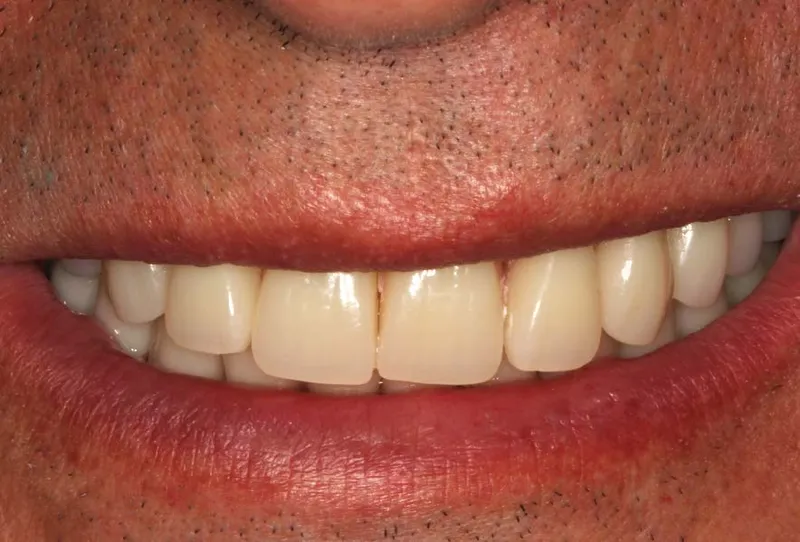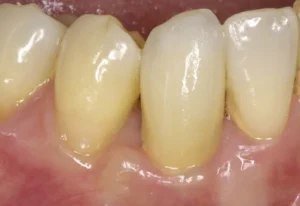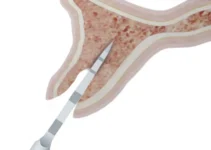Understanding how smoking impacts oral health is crucial for maintaining optimal dental well-being. Smoking can lead to a range of oral health issues, from gum disease and tooth loss to more severe conditions like oral cancer. This article explores the mechanisms by which smoking deteriorates oral health, offering essential information on preventive measures and potential treatments. By gaining insight into the deleterious effects of tobacco on the mouth, individuals can make informed decisions about their health and seek appropriate dental care to mitigate these risks.
The Impact of Smoking on Oral Health
Smoking has long been associated with numerous health issues, and its detrimental effects on oral health are significant. The harmful substances in tobacco can wreak havoc on the gums, teeth, and soft tissues in the mouth. Understanding the specific ways in which smoking impacts oral health can help in taking proactive measures to mitigate these effects.
For those who are smokers, it is crucial to be aware of the risks and take steps to protect their oral health. Regular dental check-ups, proper oral hygiene, and cessation programs can significantly reduce the negative impact of smoking. Dentists and healthcare professionals can provide guidance and resources to help smokers improve their oral and overall health.
Increased Risk of Gum Disease
One of the most significant impacts of smoking on oral health is the increased risk of gum disease. Gum disease, also known as periodontal disease, is an infection of the gums and bone that support the teeth. Smokers are more likely to develop this condition due to the harmful effects of tobacco on the gum tissues.
Smoking reduces blood flow to the gums, impairing the healing process and making it more difficult for the gums to ward off infections. This can lead to symptoms such as swollen, bleeding gums, and ultimately, tooth loss. Studies have shown that smokers are up to six times more likely to develop gum disease compared to non-smokers.
In addition to increasing the risk of gum disease, smoking can also make treatment less effective. The lack of adequate blood flow and oxygenation inhibits the body’s ability to respond to periodontal treatments, resulting in slower healing and poorer outcomes. For smokers, quitting smoking is one of the most effective ways to reduce the risk of gum disease and improve overall oral health.
Tooth Discoloration and Staining
Another common issue among smokers is tooth discoloration and staining. The nicotine and tar found in tobacco can easily adhere to the surface of the teeth, causing yellow or brown stains. This discoloration can be particularly stubborn and difficult to remove with regular brushing and over-the-counter whitening products.
The aesthetic impact of tooth staining can affect a person’s confidence and willingness to smile. Professional dental cleanings and whitening treatments can help remove these stains, but the best way to prevent further discoloration is to quit smoking altogether. It is important to note that even after quitting, it might take some time and multiple treatments to remove the existing stains completely.

For those who continue to smoke, maintaining diligent oral hygiene practices, such as brushing twice a day with fluoride toothpaste, flossing daily, and using antiseptic mouthwash, can help reduce the buildup of stains. However, these measures are not a substitute for quitting smoking, which remains the most effective way to prevent tooth discoloration.
Oral Cancer Risk
One of the most severe consequences of smoking on oral health is the increased risk of oral cancer. Tobacco smoke contains numerous carcinogenic substances that can damage the cells in the mouth, leading to cancerous growths. Oral cancer can affect the lips, tongue, cheeks, floor of the mouth, hard and soft palate, and throat.
Research has shown that smokers are significantly more likely to develop oral cancer compared to non-smokers. The risk is even higher for those who use both tobacco and alcohol, as the combination of these substances has a synergistic effect on the development of cancer. Symptoms of oral cancer include persistent sores, lumps, or patches in the mouth, difficulty chewing or swallowing, and unexplained weight loss.
Early detection and treatment are crucial for improving the prognosis of oral cancer. Dentists play a vital role in screening for signs of oral cancer during routine check-ups. For smokers, quitting smoking can dramatically reduce the risk of developing oral cancer and improve overall health outcomes.
For more insights into oral health and the latest advancements in dental care, be sure to explore our other articles. Stay informed and proactive in maintaining a healthy smile.
Preventive Measures for Smokers
Smoking is a significant risk factor for a range of oral health issues, including periodontal disease, tooth loss, and oral cancer. Given these risks, it is crucial for smokers to take preventive measures to maintain optimal oral health. This section will discuss various strategies that smokers can implement to protect their teeth and gums.
One of the most effective measures is quitting smoking altogether. However, for those who are not ready to quit, there are still several steps they can take to reduce the impact of smoking on their oral health. These include maintaining a rigorous oral hygiene routine, using specific dental products designed for smokers, and seeking regular professional care.
Furthermore, it’s essential for smokers to educate themselves about the potential risks associated with tobacco use. Awareness and early detection are key to managing the adverse effects of smoking on oral health. Smokers should be vigilant about any changes in their mouth and seek immediate professional advice if they notice anything unusual.
Regular Dental Check-ups
Regular dental check-ups are crucial for smokers due to their increased risk of developing oral health problems. Dentists can provide early detection of issues such as gum disease, cavities, and oral cancer, significantly improving the chances of successful treatment. Experts recommend that smokers visit their dentist at least twice a year for comprehensive examinations and professional cleanings.
During these visits, the dentist can monitor the health of your gums and teeth, identifying any early signs of disease or damage. This proactive approach allows for prompt intervention, potentially preventing more severe problems down the line. Moreover, professional cleanings can help remove tartar and plaque, which are more likely to build up in smokers. Regular removal of these substances can reduce the risk of gum disease and tooth decay. Dentists may also provide personalized advice on the best oral hygiene practices and products for smokers.
Additionally, regular check-ups can serve as a motivational tool for smokers who are considering quitting. Discussions with dental professionals about the visible effects of smoking on oral health can be a powerful incentive to stop smoking. For those who need extra support, dentists can refer patients to smoking cessation programs and resources.
By adhering to these preventive measures and committing to regular dental check-ups, smokers can significantly reduce the risk of severe oral health issues. For more information on maintaining oral health and other related topics, be sure to explore our other articles.
The Benefits of Quitting Smoking for Oral Health
Immediate Oral Health Improvements
Quitting smoking has nearly instantaneous benefits for your oral health. Within a few days of cessation, you’ll notice that your sense of taste and smell may start to improve. This enhancement occurs because smoking dulls these senses, and stopping allows them to recover and function more effectively.
Another immediate benefit is the decrease in oral inflammation. Smoking is known to cause gum inflammation, leading to a condition known as gingivitis. When you quit smoking, your gums will start to heal, reducing redness, swelling, and bleeding. This creates a healthier environment for your teeth and gums, minimizing the risk of more serious dental issues.
Additionally, your breath will smell fresher. Smoking not only causes bad breath but also encourages the accumulation of bacteria in the mouth. When you stop smoking, there’s a significant reduction in bacterial growth, thereby improving your breath almost immediately.
Long-term Oral Health Benefits
In the long run, quitting smoking can profoundly impact your oral health by significantly lowering the risk of oral cancers. Studies have shown that smokers are several times more likely to develop cancers of the mouth, throat, and esophagus. By quitting, you reduce this risk substantially, especially if you maintain abstinence for several years.
Another substantial benefit is the improvement in gum health and the prevention of periodontal disease. Smoking is a major cause of gum disease, which can lead to tooth loss. By quitting, you help preserve your gums, teeth, and supporting structures, thus maintaining a stronger dental foundation.
Your teeth’s appearance will also improve. Smoking causes teeth to become stained and yellowed over time. When you quit, the staining process is halted, and you can further enhance your smile through professional cleanings and whitening treatments, resulting in a brighter, more attractive appearance.
Support and Resources for Quitting
Successfully quitting smoking often requires a comprehensive approach. Various resources can support you in this journey:
- Nicotine Replacement Therapy (NRT) – Products like patches, gums, and lozenges can help reduce withdrawal symptoms.
- Counseling and Support Groups – Talking with a counselor or participating in a support group can provide emotional support and practical tips.
- Prescription Medications – Some medications can help you quit smoking by reducing cravings and withdrawal symptoms. Consult your healthcare provider for options.
- Mobile Apps and Online Resources – There are numerous apps and websites dedicated to helping individuals quit smoking with tips, trackers, and community support.
Combining these resources can enhance your chances of quitting successfully. Remember, every attempt to quit is a step towards a healthier lifestyle, and numerous resources are available to guide you along the way. If you found this article helpful, be sure to explore our other articles on maintaining optimal oral health and improving your overall well-being.
Conclusion
In conclusion, dental implantology and bone regeneration are pivotal components of modern dentistry that significantly improve patient outcomes. The advancements in these fields have made it possible for individuals to regain lost functionality and aesthetics, thereby enhancing their overall quality of life. Bone regeneration, in particular, plays a crucial role in ensuring the success of dental implants. Techniques such as guided bone regeneration (GBR), autografts, allografts, and xenografts, coupled with technological innovations like 3D imaging and biomaterials, have revolutionized the way dentists approach complex cases.
Despite the incredible advancements, it is essential to understand that each patient’s case is unique. Factors such as age, health status, and specific dental conditions can greatly impact the success rate of bone regeneration and implant integration. Therefore, a thorough assessment and personalized treatment plan are imperative for optimal results. Furthermore, ongoing research and continuous education in the field are necessary to keep up with the ever-evolving techniques and materials that promise better and more predictable outcomes.
As we move forward, the integration of biotechnology, nanotechnology, and digital dentistry will likely play an even more significant role in shaping the future of implantology and bone regeneration. For patients and practitioners alike, staying informed about these advancements is crucial. If you’ve found this article insightful, we encourage you to explore our other articles that delve deeper into specific techniques, case studies, and emerging trends in dental implantology and bone regeneration.
Common Concerns About Smoking and Oral Health
Smoking has various detrimental effects on oral health. Understanding these can help smokers take necessary precautions or consider quitting.
How does smoking affect my oral health?
Smoking can lead to several oral health issues, including gum disease, tooth decay, and oral cancer. Nicotine and tar in cigarettes impair blood flow, reducing oxygen and nutrient supply to the gum tissues, promoting bacterial growth and plaque accumulation. This leads to increased risks of gum disease, which can progress to more severe conditions if unchecked.

My name is Salman Kapa, a 73-year-old expert in bone regeneration and dental implantology. With decades of experience in the field, I am dedicated to advancing our understanding of oral health and hygiene. Through my research and writing, I aim to contribute to the development of innovative solutions in dental care.




